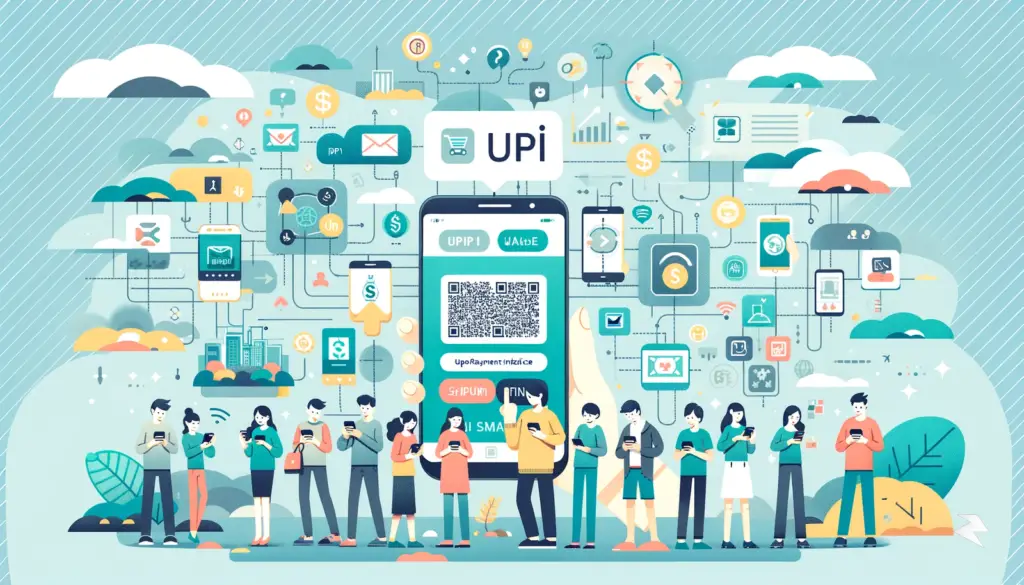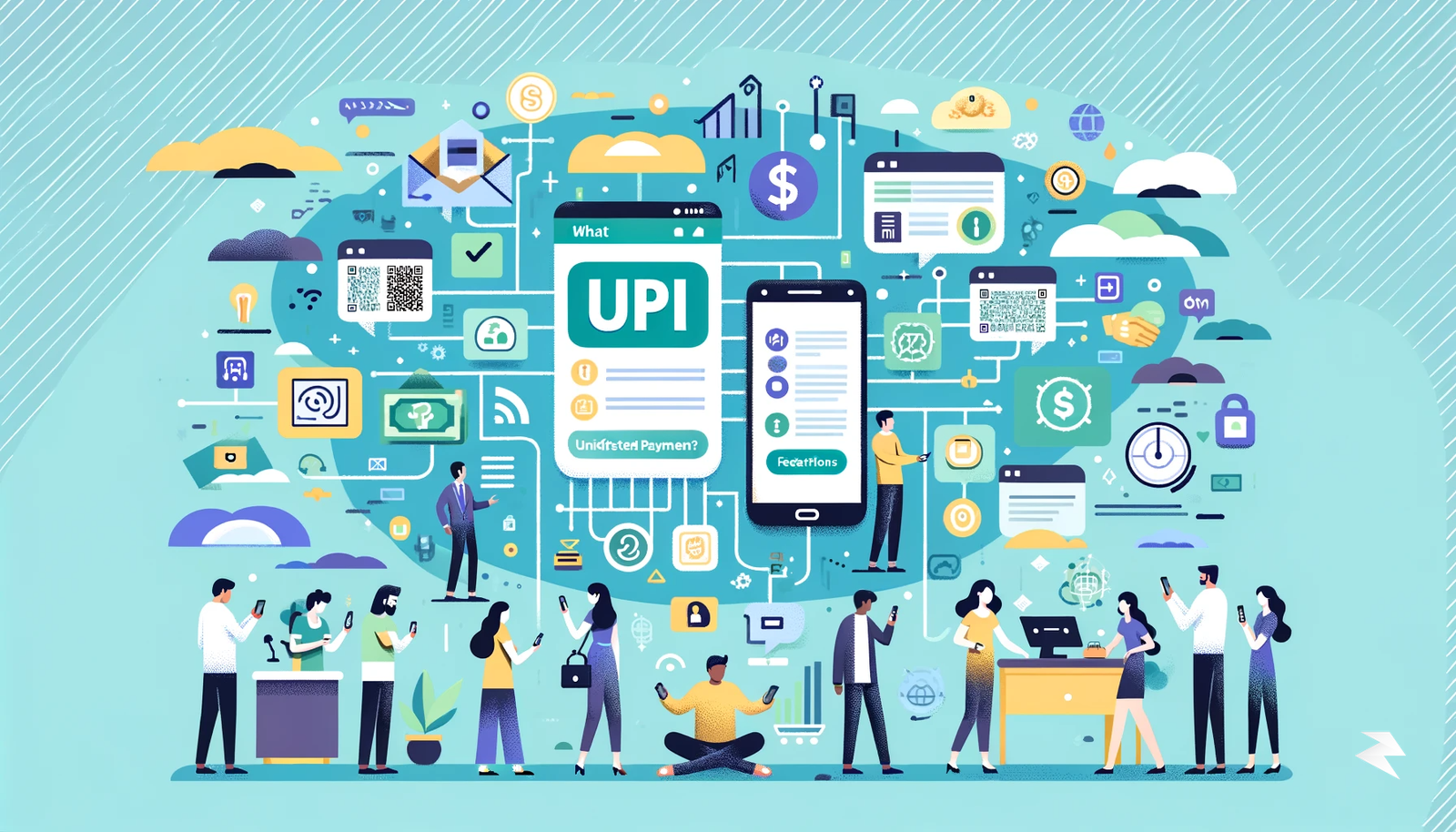In the fast-paced digital era, the way we handle financial transactions has witnessed a significant transformation. Unified Payments Interface (UPI) is one of the groundbreaking innovations in the realm of digital payments. It is revolutionizing digital payments. Moreover, UPI has emerged as a game-changer, simplifying and streamlining the way individuals and businesses transfer money.
In this article, we’ll explore the ins and outs of UPI. We’ll also learn its impact on the financial landscape, and why it has become an integral part of the digital economy.
Table of contents
What is UPI (Unified Payment Interface)

The Unified Payments Interface, or UPI, is a real-time payment system designed by the National Payments Corporation of India (NPCI). Since its launch in 2016, UPI has made it possible for consumers to seamlessly route funds. Also made it possible to make merchant payments by connecting various bank accounts to a single smartphone application. Moreover, UPI is unique in that it’s easy to use and interoperable, allowing users to send and receive money between banks with ease.
Imagine a world where sending money happens in a blink, where you don’t need lengthy bank details to pay someone. That’s where the Unified Payments Interface (UPI) steps in. However, UPI isn’t just about quick money transfers, it’s a game-changer. It’s about making payments easy by using a simple ID or scanning a QR code. This nifty system lets you link multiple bank accounts in one app, giving you more control.
Key Features of Unified Payments Interface
UPI has transformed how we handle money. Its instant transactions make life faster, whether paying a friend or shopping at your favorite store. Some of the key features of the Unified Payments Interface are:
- Real-time Transactions: UPI enables instant fund transfers 24/7, revolutionizing the speed at which transactions take place.
- Simplified Payments: Users can make payments using UPI by simply knowing the recipient’s UPI ID, or mobile number, or scanning a QR code. This eliminates the need for cumbersome bank details.
- Multi-Bank Integration: UPI allows users to link multiple bank accounts to a single UPI-enabled app, providing flexibility and convenience.
- Merchant Payments: UPI has become a popular choice for making payments at both online and offline merchants. It offers a quick and secure way to complete transactions.
- Bill Payments and Services: UPI apps offer a wide range of services, including utility bill payments, ticket booking, and more. Which makes it a versatile platform for financial transactions.
It’s not just about convenience, it’s a platform that simplifies bill payments and offers countless services. UPI has truly made our financial lives smoother, marking a new era in hassle-free digital transactions.
Impact of UPI on the Digital Economy

UPI, the Unified Payments Interface, has reshaped our digital economy in ways we couldn’t have imagined. Its arrival has not just altered how we transact money. Additionally, It has transformed our entire approach to online financial interactions.
Some of the Impacts of UPI on the Digital Economy are:
- Financial Inclusion: UPI has played a pivotal role in promoting financial inclusion. It provides a convenient and accessible platform for users across different demographics.
- Reduced Dependency on Cash: The ease of UPI transactions has contributed to a reduction in cash transactions. Which fostered a cashless economy and reduced the associated risks of carrying physical currency.
- Boost for Small Businesses: Small businesses and entrepreneurs benefit from UPI. It provides a cost-effective and efficient way to receive payments. Moreover, It expands their reach and customer base.
- Security Measures: UPI transactions incorporate robust security features, including two-factor authentication. Which ensures a secure environment for users to conduct financial transactions.
In conclusion, UPI has laid the groundwork for a future where financial interactions are effortless, accessible, and fast-tracked.
Challenges and Future Developments

Even though UPI has come a long way, there are still issues including cybersecurity risks and the requirement for ongoing user education. However, UPI may see additional integration with cutting-edge technologies like blockchain, heightened worldwide acceptance, and improved security measures in the future.
Challenges and Future Steps: UPI’s journey isn’t without its hurdles. Cyber threats are a concern, demanding stronger security measures. Moreover, Educating users about safe practices remains vital for smooth transactions.
Future Possibilities: Looking ahead, UPI might embrace cutting-edge technologies like blockchain for better security and transparency. It’s also poised for global expansion, fostering international transactions. Continuous improvements in security tech will fortify UPI against evolving threats.
As it evolves, adopting advanced tech and reinforcing security will make it more robust. UPI’s potential to reshape digital transactions while ensuring safety remains bright, shaping the future of finance.
Conclusion

Unified Payments Interface, which provides a user-friendly, safe, and effective platform for financial transactions, has unquestionably changed the face of digital payments. As we traverse the dynamic terrain of digital banking, UPI serves as evidence of the ability of innovation to influence how we will handle money in the future. Furthermore, Using UPI to transact digitally can open up a world of opportunities for both consumers and company owners.


Leave a Comment